
Find A Professional
More Items From Ergsy search
-

Are vaccines safe?
Relevance: 100%
-
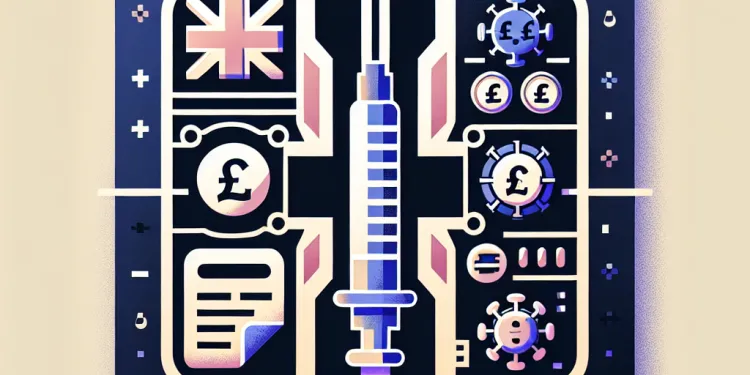
What are the different types of vaccines?
Relevance: 90%
-

What steps can improve vaccine effectiveness?
Relevance: 83%
-
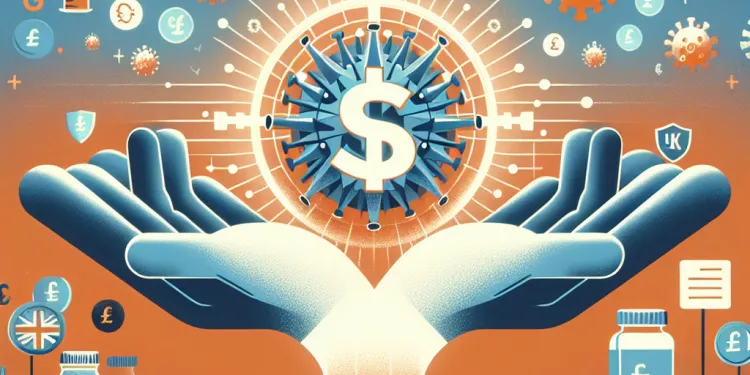
Can everyone receive vaccines?
Relevance: 82%
-

Can vaccines cause the diseases they protect against?
Relevance: 80%
-

What is a subunit vaccine?
Relevance: 79%
-
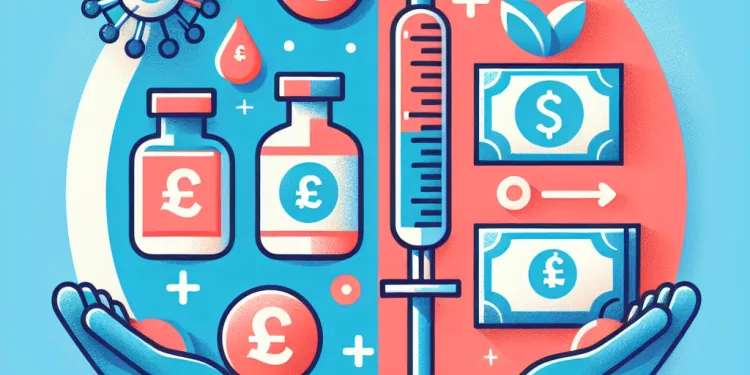
How effective is the flu vaccine?
Relevance: 75%
-
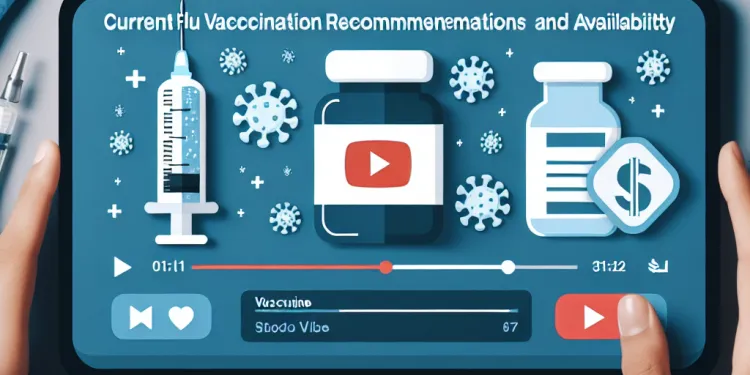
Current Flu Vaccination Recommendations and Availability
Relevance: 74%
-
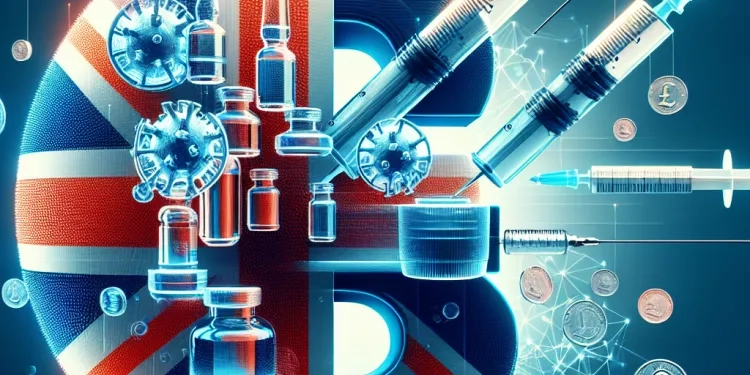
What are vaccines and how do they work?
Relevance: 73%
-
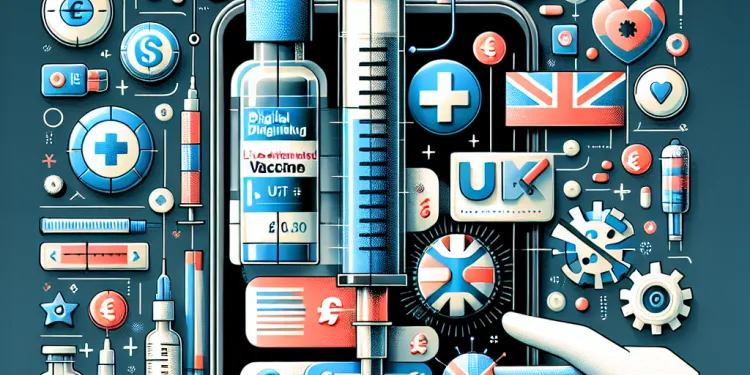
What is a live-attenuated vaccine?
Relevance: 72%
-
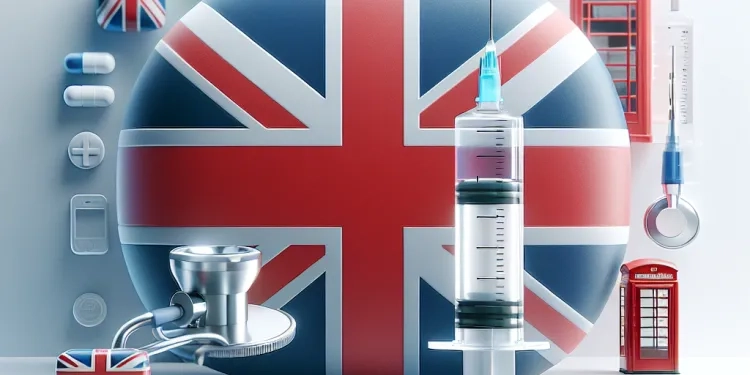
What if I'm not eligible for a free flu vaccine, can I still get vaccinated?
Relevance: 69%
-
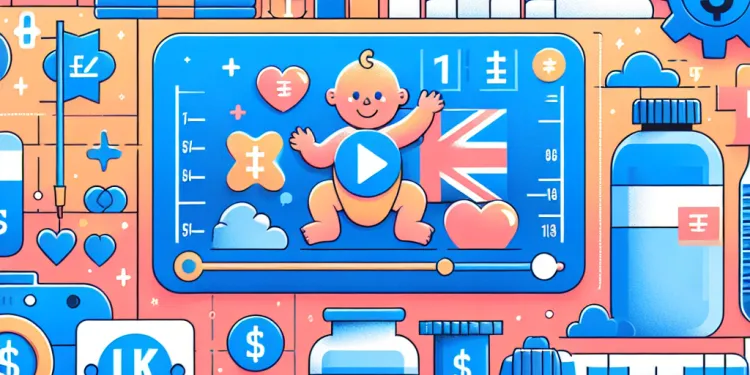
Children's Vaccination Schedule
Relevance: 68%
-
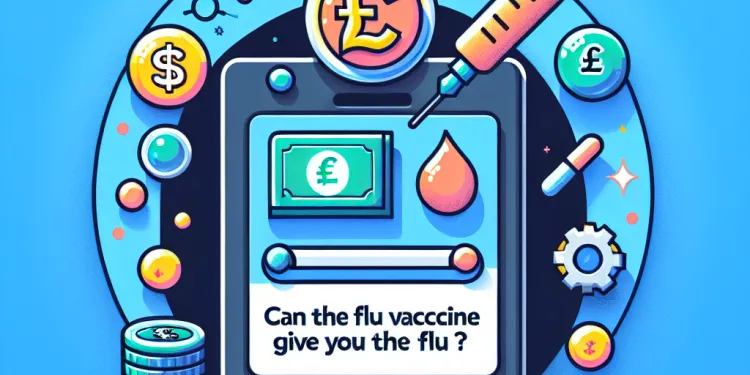
Can the flu vaccine give me the flu?
Relevance: 68%
-

How does vaccination affect measles rates?
Relevance: 68%
-
Does the flu vaccine protect against COVID-19?
Relevance: 68%
-

Can pregnant women get the flu vaccine?
Relevance: 67%
-

Is the flu vaccine free for everyone in the UK?
Relevance: 67%
-
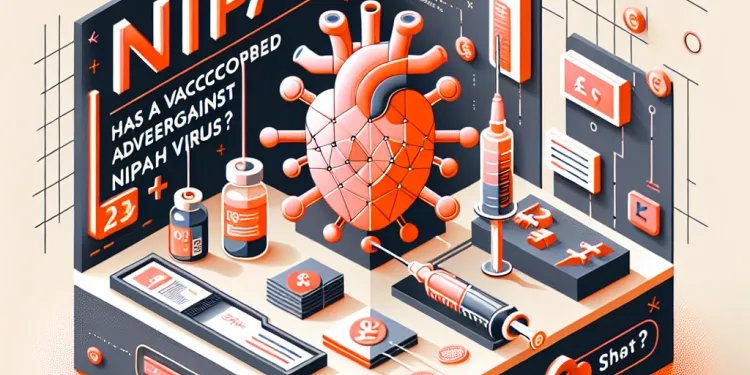
Has a vaccine been developed against Nipah Virus?
Relevance: 67%
-
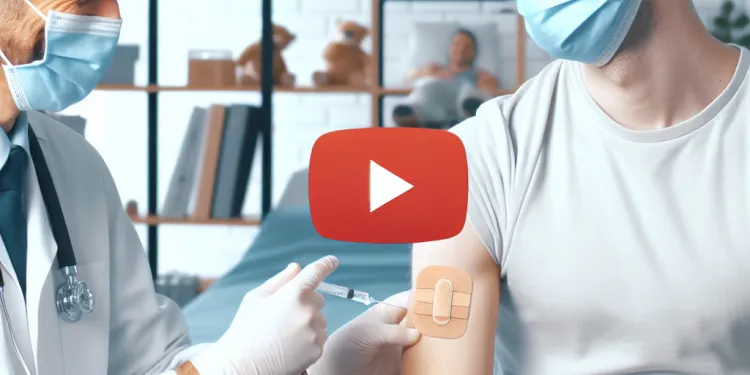
Can adults receive the MMR vaccine?
Relevance: 65%
-
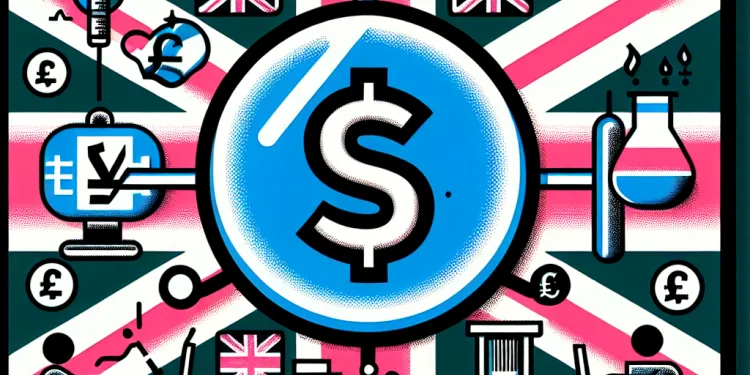
Why do vaccinated people sometimes still get sick?
Relevance: 65%
-
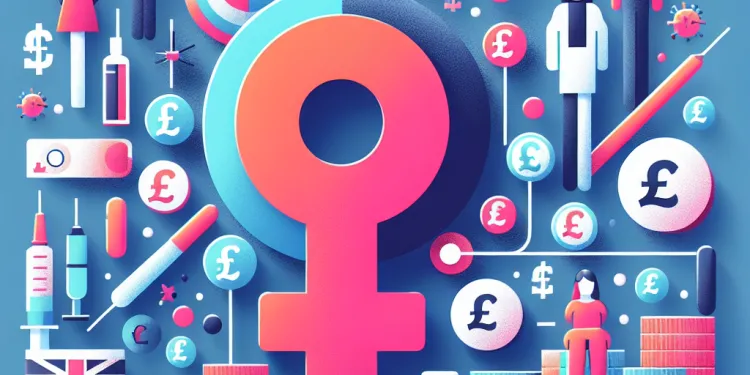
Surge in HPV Vaccination Rates Among Young Women in the UK
Relevance: 65%
-
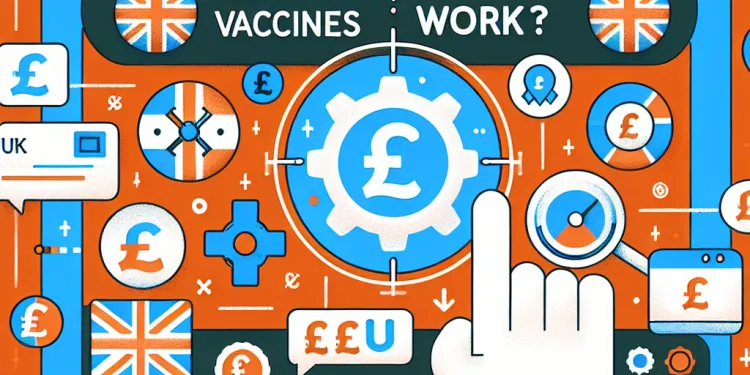
How do vaccines work?
Relevance: 64%
-

When is the best time to get the flu vaccine?
Relevance: 64%
-
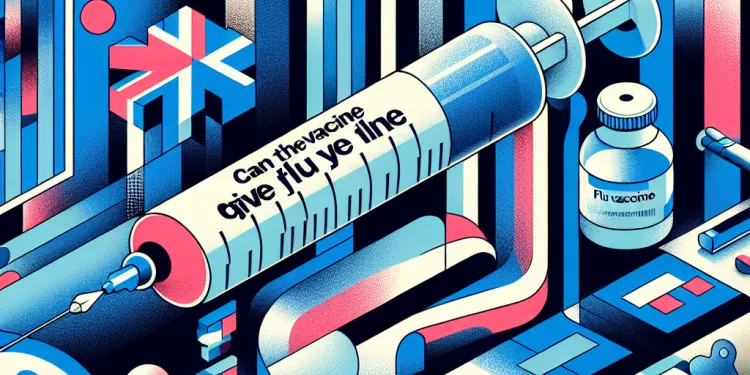
Can the flu vaccine give you the flu?
Relevance: 64%
-
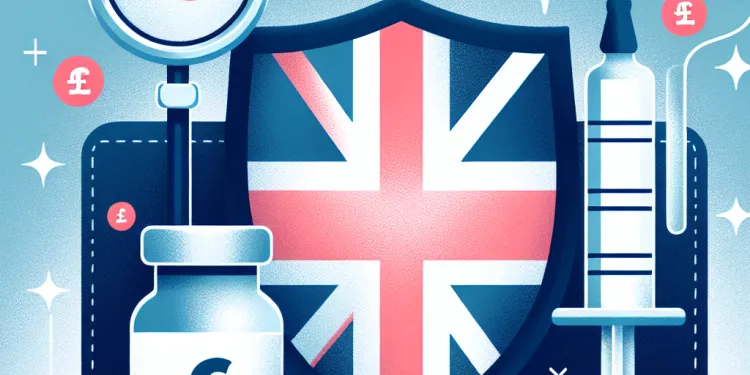
Why are vaccines important?
Relevance: 63%
-
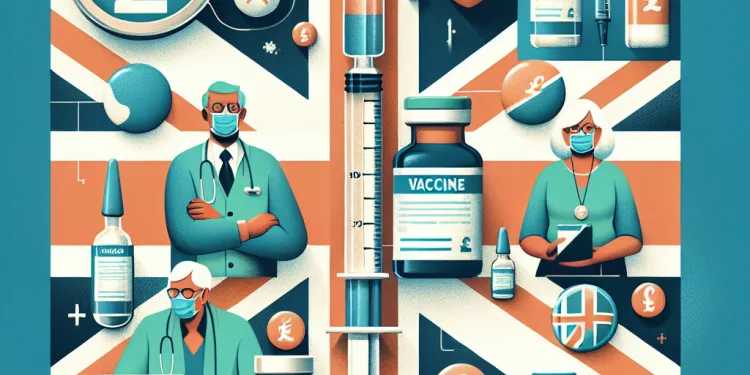
Why do some vaccines require multiple doses?
Relevance: 63%
-
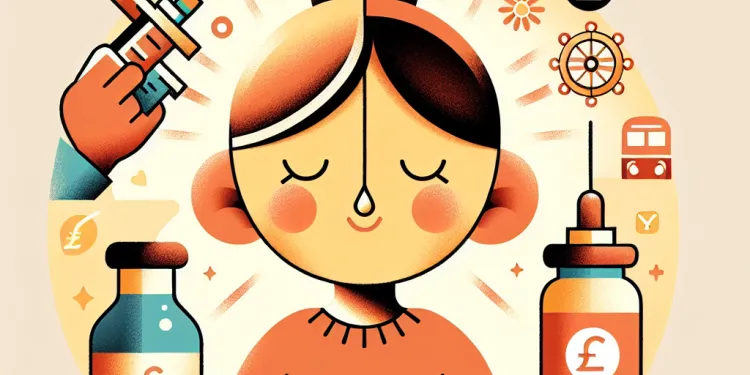
Can children receive the flu vaccine as a nasal spray?
Relevance: 62%
-
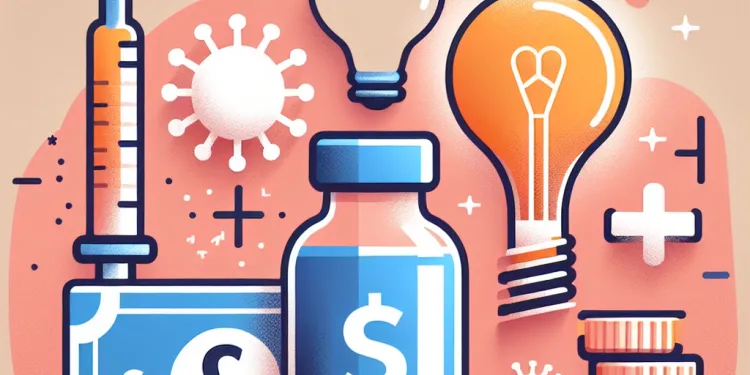
Are vaccines linked to autism?
Relevance: 62%
-

What is a vaccine?
Relevance: 62%
-
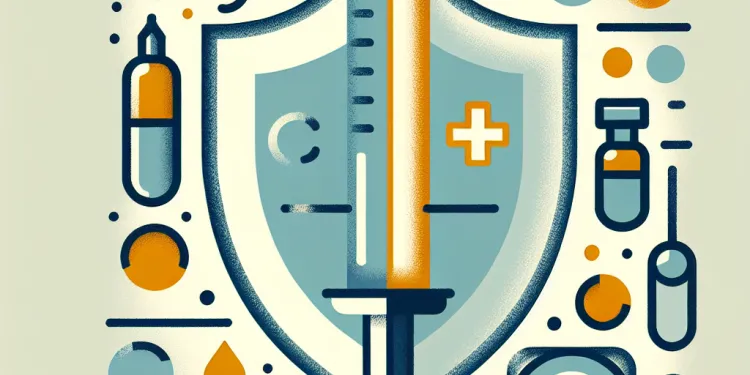
Is there a vaccine for the Zika virus?
Relevance: 62%
-

What if I have an egg allergy, can I still get the flu vaccine?
Relevance: 62%
-
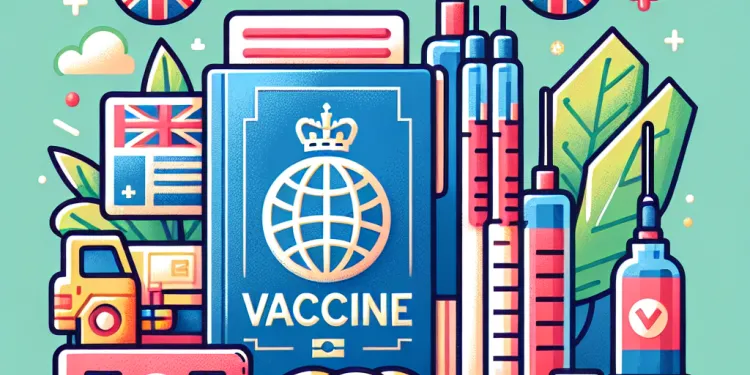
Do I need any vaccine injections for EU countries?
Relevance: 61%
-
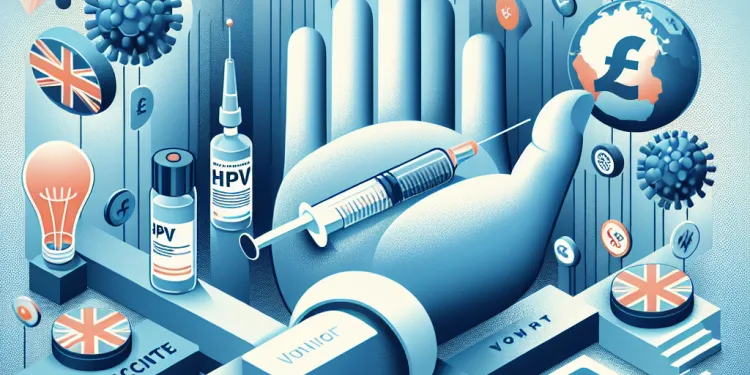
Who should get the HPV vaccine?
Relevance: 61%
-
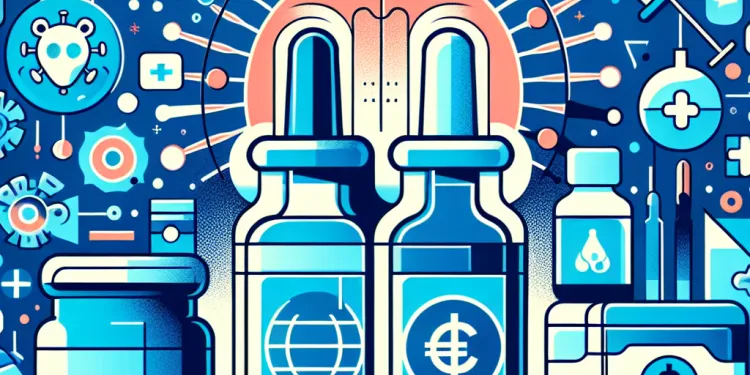
How effective is the MMR vaccine?
Relevance: 61%
-
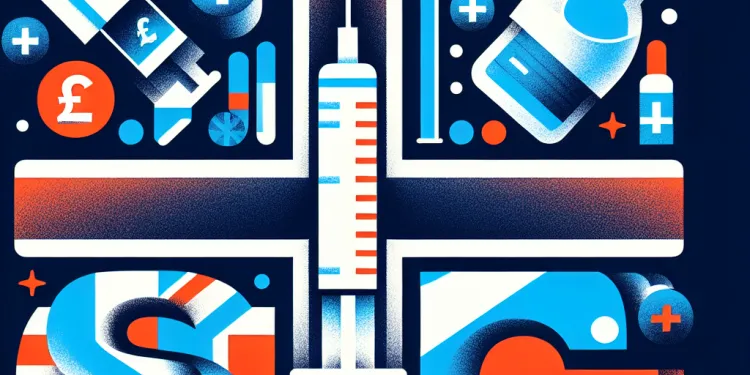
How long does it take for the flu vaccine to become effective?
Relevance: 60%
-
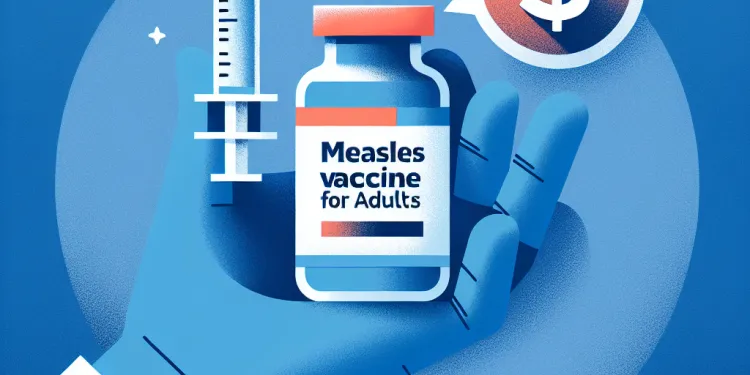
Can the measles vaccine be given to adults?
Relevance: 59%
-
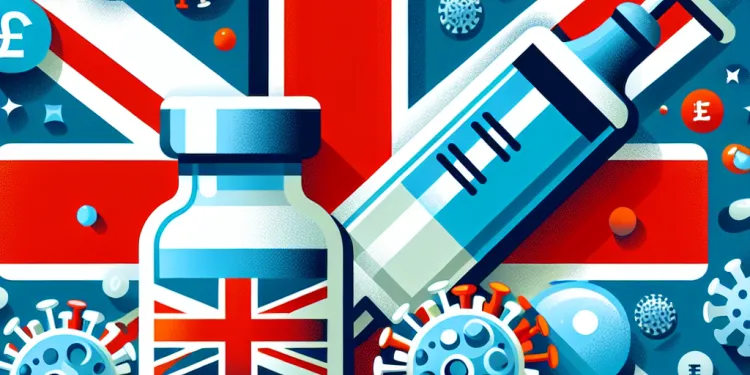
Do vaccines work against new COVID-19 variants?
Relevance: 58%
-

Is there a vaccine for Marburg virus?
Relevance: 57%
-

How do I book an appointment for the flu vaccine?
Relevance: 56%
-
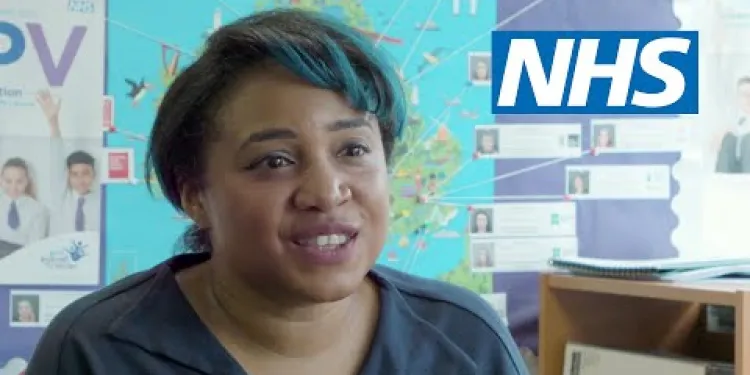
What is the year 8 HPV vaccine? | NHS
Relevance: 56%
Introduction to Vaccine Safety
Vaccines are a critical tool in public health for preventing the spread of infectious diseases. In the UK, vaccines undergo rigorous testing and monitoring to ensure their safety and effectiveness before they are made available to the public. Understanding the safety of vaccines can help alleviate concerns and encourage immunisation, thereby protecting both individuals and communities.
How Vaccines Are Tested for Safety
Before any vaccine is licensed for public use in the UK, it must go through a comprehensive testing process. This begins with extensive laboratory research, followed by clinical trials that are conducted in multiple phases. In these phases, vaccines are tested on volunteers to assess their safety, efficacy, and potential side effects. The Medicines and Healthcare products Regulatory Agency (MHRA) rigorously reviews the data from these trials to ensure that any vaccine meets strict safety standards.
Monitoring Vaccine Safety Post-Approval
Even after a vaccine has been approved for use, its safety continues to be monitored. The MHRA employs a system known as the Yellow Card Scheme, which collects and analyses reports of any adverse effects experienced following vaccination. This system helps identify rare side effects that may not have been apparent in clinical trials. Moreover, ongoing research and monitoring are conducted to continually assess and verify the safety of vaccines over time.
Addressing Concerns About Vaccine Safety
Despite the rigorous processes in place, some individuals remain concerned about vaccine safety. It's important to note that the benefits of vaccination far outweigh the risks. Vaccines effectively reduce the spread of diseases, prevent outbreaks, and save lives. The side effects from vaccines are generally mild and short-lived, such as soreness at the injection site or a slight fever. Serious side effects are extremely rare. In addition, scientific misinformation can contribute to vaccine hesitancy, but trusted healthcare professionals can provide accurate information and address concerns effectively.
The Importance of Vaccination
Vaccination not only protects the individual receiving the vaccine but also contributes to community immunity. This is especially crucial for protecting those who cannot be vaccinated, such as individuals with certain medical conditions or weakened immune systems. High vaccination coverage can prevent the resurgence of diseases that are currently controlled or eliminated, such as measles and polio. By participating in vaccination programmes, individuals help protect themselves and contribute to broader public health efforts.
Conclusion
In conclusion, vaccines available in the UK are safe and undergo extensive evaluation to ensure they provide effective protection against diseases with minimal risk. The benefits of vaccination are substantial, offering protection at both the personal and community levels. Continued public trust in vaccines is essential to maintaining high vaccination rates and preventing the spread of infectious diseases. It's important for individuals to seek out reliable information and consult healthcare professionals with any concerns about vaccine safety.
Introduction to Vaccine Safety
Vaccines help keep people healthy by stopping diseases from spreading. In the UK, vaccines are checked carefully to make sure they are safe before people can use them. Knowing that vaccines are safe can help people feel less worried and get their shots. This helps keep everyone healthy.
How Vaccines Are Tested for Safety
Before a vaccine is allowed for people to use in the UK, it goes through a lot of tests. Scientists test the vaccine in the lab first. Then, they test it on volunteers in different stages to make sure it is safe and works well. The Medicines and Healthcare products Regulatory Agency (MHRA) checks all this information to make sure the vaccine is really safe and meets high standards.
Monitoring Vaccine Safety Post-Approval
After a vaccine is approved, its safety is still watched closely. The MHRA uses something called the Yellow Card Scheme to collect reports from people who had any problems after getting the vaccine. This helps find any rare side effects. Scientists keep checking vaccines to make sure they stay safe over time.
Addressing Concerns About Vaccine Safety
Some people might still worry about vaccine safety. But it’s important to know that vaccines help stop diseases and save lives. Most side effects from vaccines are mild, like a sore arm or a small fever. Serious problems are very rare. It's also important to get good information from doctors if you have questions about vaccines.
The Importance of Vaccination
Getting vaccinated helps protect you and everyone around you. It keeps people who can't get vaccines safe too, like those with certain health issues. When lots of people get vaccinated, it stops diseases like measles and polio from coming back. Joining vaccination programs helps keep the community healthy.
Conclusion
Vaccines in the UK are safe and are checked many times to make sure they work well with little risk. Vaccines protect you and your community. Trusting vaccines is important to keep diseases from spreading. If you have questions about vaccine safety, talk to a doctor for the right information.
Frequently Asked Questions
Are vaccines safe?
Yes, vaccines are safe. They undergo rigorous testing in clinical trials and are continuously monitored for safety.
Do vaccines have side effects?
Vaccines can have side effects, but they are typically mild, such as a sore arm or low-grade fever. Serious side effects are very rare.
How are vaccines tested for safety?
Vaccines go through multiple phases of clinical trials to evaluate their safety and effectiveness before approval. This involves thousands of participants and careful monitoring.
What agencies ensure vaccine safety?
In the United States, the FDA, CDC, and other regulatory agencies oversee the safety and effectiveness of vaccines.
Can vaccines cause long-term health problems?
No evidence supports the idea that vaccines cause long-term health problems. They are continuously monitored to ensure long-term safety.
Why do vaccines contain preservatives?
Preservatives in vaccines prevent contamination and ensure the vaccine remains effective and safe over time.
Are vaccines safe for pregnant women?
Certain vaccines are recommended for pregnant women. It's important to speak with a healthcare provider for guidance specific to your health needs.
Can vaccines cause the disease they are meant to prevent?
Most vaccines do not contain live pathogens and cannot cause the disease. Live vaccines use weakened pathogens that rarely cause illness.
How common are allergic reactions to vaccines?
Severe allergic reactions to vaccines are very rare, occurring in approximately 1 in a million doses.
Is it safer to get immunity from the disease than from a vaccine?
Getting immunity from a vaccine is much safer than getting it from the disease itself, which can lead to serious complications.
Are childhood vaccines safe?
Yes, childhood vaccines are thoroughly tested and monitored for safety to protect children from serious diseases.
How are vaccine safety concerns addressed?
Vaccine safety concerns are addressed through continuous monitoring, research, and improvements in vaccine development and administration.
Do vaccines contain harmful chemicals?
Vaccines contain small amounts of ingredients to ensure their safety and efficacy. These have been studied and are safe for human use.
Are vaccines safe for people with weakened immune systems?
Some vaccines are safe for people with weakened immune systems. It's important to consult a healthcare provider for specific advice.
Why do we need vaccines if diseases are almost eradicated?
Vaccines prevent outbreaks of diseases that still exist globally, protecting those who are unvaccinated or have weak immunity.
Are there any vaccines that are not recommended for certain age groups?
Yes, some vaccines are not recommended for certain age groups due to differences in immune response and safety profiles.
What happens if a vaccine has a safety issue after release?
If a vaccine has unforeseen safety issues, health agencies investigate and take appropriate actions, including updating recommendations or modifying the vaccine.
How do we know if a vaccine is safe after it's released?
Post-marketing surveillance and pharmacovigilance systems track and analyze vaccine safety data continuously after release.
Can I report a side effect from a vaccine?
Yes, side effects can be reported to vaccine safety surveillance programs such as the Vaccine Adverse Event Reporting System (VAERS) in the US.
Are newer vaccines as safe as older ones?
Newer vaccines are subject to the same rigorous safety testing as older ones. Advances in technology continue to improve safety and efficacy.
Are vaccines safe?
Vaccines are shots that help you stay healthy. They stop you from getting sick.
Doctors test vaccines to make sure they are safe for everyone.
If you get a vaccine, you might feel a little sore or tired after. This is normal.
Vaccines help to keep you and others safe from bad illnesses.
If you have questions, you can ask a doctor or nurse. They know a lot about vaccines.
You can also use pictures or videos to help learn about vaccines.
Yes, vaccines are safe. They get tested a lot by doctors and scientists to make sure they work. They also keep checking them to make sure they stay safe.
- You can use pictures to help understand how vaccines work.
- Ask someone to explain things you don’t get.
- Watch videos about vaccines to learn more.
Do vaccines have side effects?
Sometimes, vaccines can make you feel a little sick. This is like when you get a sore arm or feel tired. It usually goes away fast.
Not everyone feels sick after a vaccine. Most people feel okay.
If you feel bad for a long time, tell a grown-up or see a doctor.
To help understand, you can use pictures, videos, or ask someone to explain it to you.
Vaccines can sometimes cause side effects. Most of the time, these are not serious. You might get a sore arm or a little fever. Serious problems from vaccines are very rare.
How do we know vaccines are safe?
Before a new vaccine is given to people, scientists test it to make sure it is safe.
They do this in several steps:
- First, they test the vaccine on cells in a lab.
- Next, they test it on animals to see if it works and is safe.
- Then, they give it to a small group of people to check safety and how well it works.
- After that, they test it on a bigger group of people to learn more.
- Finally, a very large group of people get the vaccine so scientists can understand safety and effectiveness even better.
After all these tests, experts look at the results carefully. If the vaccine is safe and works well, it can be given to everyone.
Doctors and nurses also keep watching to make sure the vaccine stays safe.
Helpful tools:
- Use pictures and videos to understand better.
- Ask a caregiver or friend to explain if you need help.
Vaccines are tested to make sure they are safe and work well. They go through many tests called clinical trials. These trials have lots of people in them, and doctors watch closely to check everything is okay before the vaccines are approved for use.
If you find reading hard, try using tools like text-to-speech apps that read the text out loud or visual aids like pictures and diagrams. These can help make the information easier to understand.
Who makes sure vaccines are safe?
In the United States, there are groups that make sure vaccines are safe and work well. These groups are called the FDA and the CDC.
Do vaccines make people sick for a long time?
Some people worry that vaccines can cause problems that last a long time.
Vaccines are very safe for most people. They help keep us healthy.
If you have worries, you can talk to a doctor or nurse. They can answer questions.
Reading about vaccines with a family member or friend may also help.
Vaccines do not cause health problems later on. Experts check them all the time to make sure they are safe.
Why do vaccines have preservatives?
Vaccines have something called preservatives to keep them safe. This stops germs from growing in the vaccine. It helps the vaccine work well.
Preservatives make sure the vaccine stays clean and strong until it is ready to use.
You can ask a doctor or nurse if you have questions about vaccines. They can help you understand more.
Preservatives in vaccines stop germs from growing. This helps keep the vaccine safe and working well for a long time.
Can pregnant women get vaccines safely?
Some vaccines are good for pregnant women. Talk to your doctor to find out what is best for you.
Do Vaccines Make You Sick with the Same Illness?
Vaccines help keep you healthy. They stop you from getting sick. Vaccines do not give you the illness they protect you from.
Sometimes, you might feel a little unwell after getting a vaccine. This is normal and goes away quickly.
If you have questions or feel worried, talk to a doctor. You can also use picture books and videos to learn more about vaccines.
Most vaccines do not have live germs. This means they cannot make you sick. Some vaccines have weak germs that almost never make you sick.
How often do people have allergies to vaccines?
Severe allergic reactions to vaccines are very rare. This happens about once in every 1 million vaccine doses.
Is it safer to be protected by getting sick or by getting a shot?
It can be safer to get protection (immunity) from a shot, called a vaccine, than from getting sick. Shots can help stop you from getting really sick. When you get a shot, doctors use only a small, safe part of the germ to teach your body how to fight it. This way, you usually stay healthy.
Getting sick might give you protection too, but it can make you feel really bad, and sometimes it is very dangerous.
It's good to talk to a doctor if you are unsure what is best for you. They can help you decide and explain things clearly.
Support Tools: You can use simple pictures to show how vaccines work. A doctor or nurse can also help explain it to you.
It's better to keep safe by getting a vaccine. This is because getting sick to become immune can make you very ill.
Are childhood vaccines safe?
Yes, vaccines for children are safe. Doctors and scientists check vaccines very carefully. They make sure they work well and do not hurt kids. Getting vaccines keeps children healthy and safe from diseases.
If you have questions, you can ask your doctor. You can also use pictures or videos to help understand more about vaccines. Talking with someone you trust can also be helpful.
Yes, vaccines for children are checked and watched carefully. This makes sure they are safe and help protect kids from getting very sick.
How do we make sure vaccines are safe?
It is important to know that vaccines are safe.
Doctors and scientists check vaccines very carefully. They do lots of tests.
Many people look at the test results to make sure everything is okay.
If a new vaccine is safe, people can use it.
You can talk to your doctor if you have questions about vaccines.
There are websites and videos that can help you learn more.
Doctors check vaccines all the time to make sure they are safe. They do lots of tests and research, and they work hard to make vaccines better. This helps keep people safe and healthy.
Are there bad chemicals in vaccines?
Vaccines help keep us safe from getting sick. Some people worry about the chemicals in them. The doctors who make vaccines make sure they are safe. To understand better, you can ask a doctor or nurse. You can also look for simple videos or books about vaccines. These can help explain things clearly.
Vaccines have small bits that help them work safely and well. These bits have been checked and are safe for people.
Are vaccines safe for people with weak immune systems?
People with a weak immune system might be more at risk from vaccines. It's good to ask the doctor what is safe.
Tip: Use simple words and pictures to understand better. Ask someone you trust if you have questions.
Some vaccines are okay for people who have weak immune systems. Talk to a doctor or nurse to find out what's best for you.
Why do we still need vaccines if diseases are mostly gone?
We need vaccines to stay healthy. Some diseases are almost gone, but they can come back. Vaccines help us keep them away.
Vaccines stop us from getting sick and stop diseases from spreading.
It is like a shield that protects us and others around us.
To learn more, you can:
- Ask your doctor to explain vaccines.
- Watch videos about how vaccines help.
- Read books with simple words about vaccines.
Vaccines help stop the spread of diseases. These diseases still happen in other parts of the world. Vaccines also protect people who can't get vaccines or who are not strong enough to fight the disease.
Tools like pictures, videos, or reading with a friend can help you understand more.
Are there some vaccines not for certain ages?
Some vaccines are not safe for everyone. There are vaccines that are not for babies, kids, or adults.
If you have questions, ask your doctor or nurse. They can tell you which vaccines are right for you.
Using pictures or a video can help you learn more about this. You can also ask someone to go with you to the doctor to help understand.
Yes, some vaccines are not safe for some age groups. This can be because our bodies react to vaccines in different ways. It is important to ask a doctor which vaccines are right for you.
What if a vaccine is not safe after people start using it?
Sometimes, experts find a problem with a vaccine after it is given to people.
If this happens, doctors and scientists will look into it quickly. They want to make sure everyone stays safe.
They might stop using the vaccine until they know more. They can also change how they give the vaccine to make it safer.
If you are worried, talk to your doctor or nurse. They can help you understand what's happening.
If there are any unexpected safety problems with a vaccine, health agencies look into it. They then take the right steps, like changing recommendations or making changes to the vaccine.
How do we know a vaccine is safe after it is used?
Doctors and scientists check if a vaccine is safe, even after we start using it. They look for any problems. This is how they do it:
- They watch people who have had the vaccine.
- They read reports about any side effects.
- They check if people stay healthy.
If there is a problem, doctors find out why it happened. They can fix it to keep people safe.
Tools like picture charts or simple videos can help explain this better.
After a vaccine is released, experts keep checking to make sure it is safe. They look at and study the safety of the vaccine all the time.
Can I tell someone about a side effect from a vaccine?
If you think a vaccine gave you a problem, you can tell someone about it. This is called reporting a side effect. A side effect is something that happens after you get medicine or a vaccine that you didn't expect.
If you are worried about how you feel after a vaccine, talk to a doctor or nurse. They can help you understand what to do next.
You can also tell a special place about your problem. This helps them keep track of vaccine safety.
Here are some tips to help you:
- Ask an adult for help if you need it.
- Write down what happened and when it happened.
- Use pictures or drawings to show how you feel.
Yes, you can tell someone if you feel unwell after getting a vaccine. In the US, you can report it to a program called VAERS. This helps keep vaccines safe.
Are new vaccines as safe as old ones?
New vaccines are tested just as carefully as older vaccines. Technology helps make vaccines even safer and work better.
Useful Links
- Ergsy carfully checks the information in the videos we provide here.
- Videos shown by Youtube after a video has completed, have NOT been reviewed by ERGSY.
- To view, click the arrow in centre of video.
- Most of the videos you find here will have subtitles and/or closed captions available.
- You may need to turn these on, and choose your preferred language.
- Go to the video you'd like to watch.
- If closed captions (CC) are available, settings will be visible on the bottom right of the video player.
- To turn on Captions, click settings .
- To turn off Captions, click settings again.
More Items From Ergsy search
-

Are vaccines safe?
Relevance: 100%
-

What are the different types of vaccines?
Relevance: 90%
-

What steps can improve vaccine effectiveness?
Relevance: 83%
-

Can everyone receive vaccines?
Relevance: 82%
-

Can vaccines cause the diseases they protect against?
Relevance: 80%
-

What is a subunit vaccine?
Relevance: 79%
-

How effective is the flu vaccine?
Relevance: 75%
-

Current Flu Vaccination Recommendations and Availability
Relevance: 74%
-

What are vaccines and how do they work?
Relevance: 73%
-

What is a live-attenuated vaccine?
Relevance: 72%
-

What if I'm not eligible for a free flu vaccine, can I still get vaccinated?
Relevance: 69%
-

Children's Vaccination Schedule
Relevance: 68%
-

Can the flu vaccine give me the flu?
Relevance: 68%
-

How does vaccination affect measles rates?
Relevance: 68%
-
Does the flu vaccine protect against COVID-19?
Relevance: 68%
-

Can pregnant women get the flu vaccine?
Relevance: 67%
-

Is the flu vaccine free for everyone in the UK?
Relevance: 67%
-

Has a vaccine been developed against Nipah Virus?
Relevance: 67%
-

Can adults receive the MMR vaccine?
Relevance: 65%
-

Why do vaccinated people sometimes still get sick?
Relevance: 65%
-

Surge in HPV Vaccination Rates Among Young Women in the UK
Relevance: 65%
-

How do vaccines work?
Relevance: 64%
-

When is the best time to get the flu vaccine?
Relevance: 64%
-

Can the flu vaccine give you the flu?
Relevance: 64%
-

Why are vaccines important?
Relevance: 63%
-

Why do some vaccines require multiple doses?
Relevance: 63%
-

Can children receive the flu vaccine as a nasal spray?
Relevance: 62%
-

Are vaccines linked to autism?
Relevance: 62%
-

What is a vaccine?
Relevance: 62%
-

Is there a vaccine for the Zika virus?
Relevance: 62%
-

What if I have an egg allergy, can I still get the flu vaccine?
Relevance: 62%
-

Do I need any vaccine injections for EU countries?
Relevance: 61%
-

Who should get the HPV vaccine?
Relevance: 61%
-

How effective is the MMR vaccine?
Relevance: 61%
-

How long does it take for the flu vaccine to become effective?
Relevance: 60%
-

Can the measles vaccine be given to adults?
Relevance: 59%
-

Do vaccines work against new COVID-19 variants?
Relevance: 58%
-

Is there a vaccine for Marburg virus?
Relevance: 57%
-

How do I book an appointment for the flu vaccine?
Relevance: 56%
-

What is the year 8 HPV vaccine? | NHS
Relevance: 56%